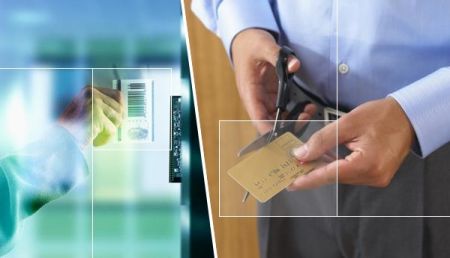Identity Theft protection - Protect Yourself
Identity theft occurs when someone uses your personal identifying information without your permission. The thief might obtain credit or open bank accounts in your name, make purchases using your credit card or even acquire a fake driver's license or Social Security card in your name. As easy as it can be to steal one’s identity, it is also easy to safeguard one’s identity, provided that the individual goes out of their way to protect themselves. One way to see if there have been any new accounts or loans opened up in your name would be to check with one of the three major credit bureaus and have a copy of your credit report sent to you. Unfortunately, many people do this after part of the damage had already been done. While it may seem like a nuisance to check with the three major credit reporting bureaus periodically, the hassle involved with that is much less than the hassle involved with attempting to clear up one’s credit rating. Also, one should never give away their social security number to any business or individual unless it is absolutely necessary.
To help prevent this from happening, one should not carry their social security card or any extra credit cards unless it is absolutely necessary. Another step that can be taken in the fight against identity fraud is to shred, tear, or burn any old bills or documents that have personal information on them. With this step being taken, a criminal cannot go through one’s trash searching for personal documents. Also, when receiving bills in the mail, it is very important to carefully scrutinize them to make sure that no unauthorized transactions have occurred. Another important thing to do is to use common sense. It is smart to avoid talking in public about private accounts; it is smart to only deposit mail in secure places, most ideally inside of a post office. Also one should always try to make account passwords difficult enough that they cannot be guessed by anybody else and also try to memorize your Social Security number so that the card does not have to be carried around and possibly get lost. Finally, file an ID theft affidavit with the Federal Trade Commission. By doing this, the FTC lets most major companies and organizations that a person’s identity has been stolen. The best defense against identity theft is to remain on top of the information in your credit profile and also to try and keep a good record of daily transactions involving identity information. There are several key factors to avoid Identity theft. To start off; guarding Social Security number is an important factor in safeguarding against Identity theft. Give out your Social Security number only when absolutely necessary or when required by law. Everyone ages twenty five and older can expect to receive a Social Security statement in the mail each year. Check it thoroughly for any discrepancies. Also, you should always memorize your PIN numbers. When while creating passwords or personal identification numbers (PINs), do not use the last four digits of your Social Security number, your birthday, your mother's maiden name or anything else that could easily be discovered by thieves. And also do not write down your PINs or passwords. Instead, commit them to memory. Another precaution one should take is to always shred away or finely tear any documents that contain personal information. This includes bank statements, credit reports, credit card offers, charge receipts, insurance forms, checks and bank statements. Also, never carry extra credit cards, your Social Security card, birth certificate or passport in your wallet or purse, unless you need it. As a precaution, make copies of your credit cards, and record your bank and investment account numbers. Keep this information in a secure place, along with the telephone numbers for customer service or the fraud department for each, so you can quickly notify them if an issue arises. Thoroughly check your credit card and bank statements each month for unauthorized or fraudulent activity. You should also pay attention to your billing cycles, and follow up with your bank or creditors if bills or statements don't arrive on time. A missing bill or statement could mean an identity thief has taken over your account and changed your billing address to cover his tracks. Identity thieves have been known to raid mailboxes for personal information. Promptly remove delivered mail from your mailbox. Deposit outgoing mail in post office mailboxes or at your local post office, rather than leaving it in your mailbox. If you will be away from home for an extended time, ask the post office to hold your mail. Also, never divulge personal information on the phone or the Internet, unless you have initiated the contact and know the company is reputable. Moving on to internet or Information Technology door, always have a firewall on your computer; firewall on your computer may help to prevent hackers from obtaining personal identifying information and financial data from your hard drive. And before disposing of your computer, remove data by using a strong "wipe" utility program. Don't rely solely on the delete function to remove files containing sensitive information. Also, Review your credit report at least once a year to check for errors and fraudulent use of your account. |
Home Already an Identity Theft Victim Find out if you are a victim of Identity Theft Identity Theft Identity Theft Insurance Identity Theft Protection Internet Identity Theft Known Stats and Figures Latest Identity Fraud Scams Using Fraud Alerts Who Can Help Links |
© 2006 www.IdentityTheftExpertSecrets.info All Rights Reserved.

